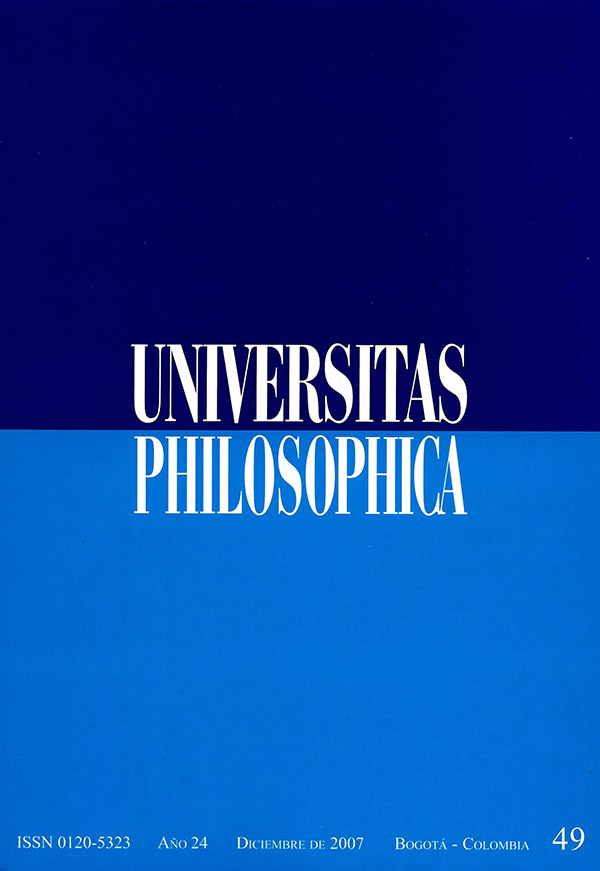Statements and Politics: Between Language Pragmatics and Analytics of Power
##plugins.themes.bootstrap3.article.details##
Abstract
This article holds it is possible to understand Foucault’s concept of power device through the characterization of two of its elements: the first one refers to the role of statements as agential functions of determinations and political subjections in the social body. The second one deals with power conceived as the affective capacity of force relationships. So, it will be firstly shown that in the archeological analysis of the statements, internal rules of speech organization are settled on, acknowledging at the same time, their relation with social space in which they emerge. In a second part, through the concept of performativity we try to make nuances in that relation. A third part is devoted to answer that question in order to find its response as a clue in the relationship between language and power. Finally, trying to connect Ducrot´s thesis on performatives and Foucault’s power thesis, it will be pointed out statements are also acts and their languages effects on the subjects do not depend on external factors –social pressure, for instance– but, on the fact they become integrated as functions in power relationships as well.
Keywords
Enunciados, dispositivos del poder, afecciones, funciones, Foucault.Statements, power devices, affections, functions, Foucault
References
How to Cite
González Montero, S. A. (2007). Statements and Politics: Between Language Pragmatics and Analytics of Power. Universitas Philosophica, 24(49). Retrieved from https://ojspuj.repositoriodigital.com/index.php/vniphilosophica/article/view/11228
Issue
Section
Articles


